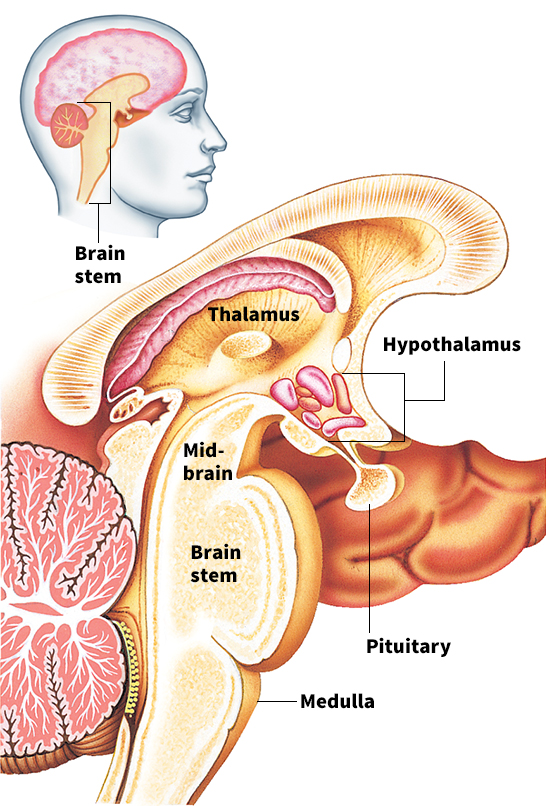Hypothalamus, << hy puh THAL uh muhs, >> is a small area at the base of the brain. The hypothalamus makes up less than 17 percent of the brain’s total volume, but it plays a key role in regulating the body’s general level of activity. The hypothalamus helps control the autonomic nervous system, part of the nervous system that regulates such automatic body processes as breathing, blood pressure, and heart rate. The hypothalamus also controls the pituitary gland, the so-called “master gland” of the endocrine (hormone-producing) system.

Certain parts of the hypothalamus regulate body temperature, breathing, sleep, hunger, thirst, urination, sexual drives, and emotions. Other parts produce hormones called releasing hormones or releasing factors. The releasing hormones travel in the bloodstream to the anterior lobe (front part) of the pituitary gland and control secretion of individual pituitary hormones. The pituitary hormones, in turn, affect many of the endocrine glands. These glands secrete hormones that influence growth, sexual development, and the rate the body changes food into energy and living tissue.
In addition to the releasing hormones, the hypothalamus produces the hormones vasopressin, oxytocin, and somatostatin. These hormones are stored in, and released by, the posterior lobe (rear part) of the pituitary gland. Vasopressin, which is also known as antidiuretic hormone, reduces the amount of water lost from the body in urine. Oxytocin helps regulate the birth process and milk production in females. Somatostatin slows the secretion of growth hormone.
